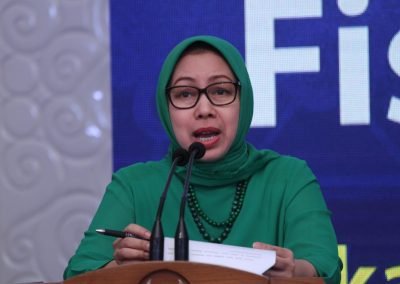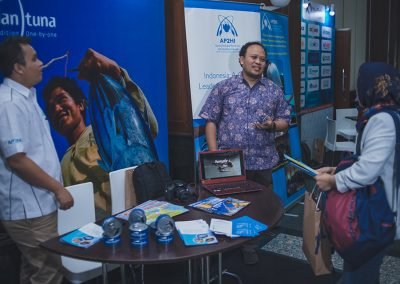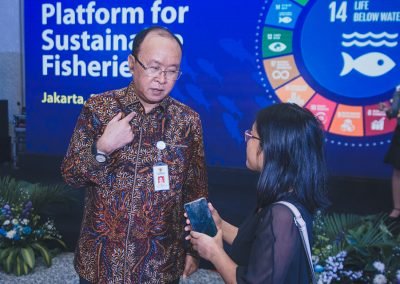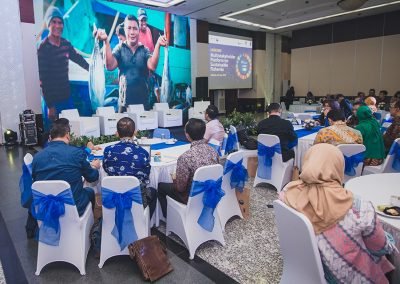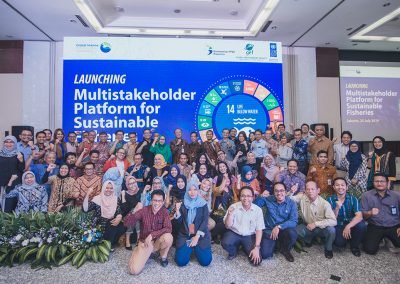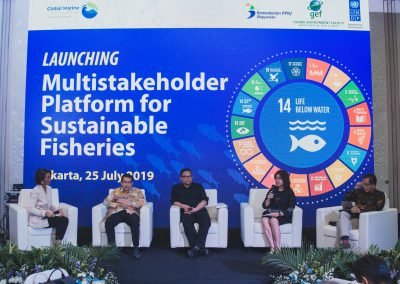As a coordinated effort to improve the management of Indonesian fishery resources, the Ministry of National Development Planning (BAPPENAS) officially launched its “Multi-stakeholder Platform for Sustainable Fisheries” as part of The Global Sustainable Supply Chains for Marine Commodities (GMC) project on Thursday, July 25, 2019.
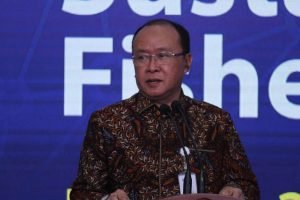
Dr. Arifin Rudiyanto, Deputy Minister for Maritime Affairs and Natural Resources at BAPPENAS
“One of the most important aspects to achieving sustainable fisheries in Indonesia is by effectively implementing a regional fisheries management (WPP) approach,” said Dr. Arifin Rudiyanto, Deputy for Maritime Affairs and Natural Resources at BAPPENAS. The launching event, held in Jakarta, Indonesia, was attended by various fisheries stakeholders including related ministries and agencies, local government, and the fishery industry, youth groups, and academics.
The GMC Project activities in Indonesia are coordinated by BAPPENAS with technical support from the United Nations Development Programme (UNDP) and funding from the Global Environment Facility (GEF). The multi-stakeholder platform is coordinated with efforts to achieve the Sustainable Development Goals (SDGs), especially Goal 14 on Life Below Water.

Sri Yanti, Director for Marine Affairs and Fisheries- BAPPENAS
“With the complexity of the challenges faced and the characteristics of capture fisheries in Indonesia, this multi-stakeholder platform is needed to agree on a shared vision, formulate strategic efforts, and jointly oversee its implementation transparently”, said Dr, Sri Yanti, National Project Director for GMC Project who also serve as Chair of SDG-14 Working Group in the BAPPENAS.
“Collaboration of all parties along the fisheries supply chain – central and local government, academics, partner institutions, youth, women, and fishers – is needed to achieve a just, independent, competitive, and sustainable Indonesian fishery,” said Sri Yanti. Speaking at the launching event, Yanti invited active participation from all fisheries through the multi-stakeholder platform to collaboratively develop a 5-year strategic program for sustainable fisheries.
In addition, the GMC project is working directly to support Fishery Improvement Projects (FIPs) in pole and line tuna as well as the blue swimming crab fishery so that these fisheries can meet internationally recognized sustainability standards in the next 1-2 years. It is expected that these two sectors of fisheries will generate lessons learned and a model for the multi-stakeholder platform in developing policy direction and in improving the sustainability of Indonesia’s fisheries.

Indonesia Multi-stakeholder Platform for Sustainable Fisheries.
The launching was followed by panel discussion with participation from Mr. Askabul Kijo, Head of Fisheries Agency from Southeast Sulawesi Province, Mrs. Janti Djuari, chair the tuna pole and line and handline industry association, who explained urgency for collaboration, Mr. Yudi Nurul Ihsan, coordinator of University network for SDG Goal-14 and Mr. Adrianto chair of Center of Excellence SDG Goal-14 from IPB University. The panelists discussed the lesson learned on governance mechanisms for fisheries management, and strategies to maintain sustainability and effectiveness of the multi-stakeholder platform.
About GMC
The GMC project is an interregional initiative implemented by the Ministries and Bureaus of Fisheries, Production and Planning of Costa Rica, Ecuador, Indonesia and Philippines, with technical support of the United Nations Development Programme (UNDP), facilitated by the Sustainable Fisheries Partnership (SFP) and funded by the Global Environment Facility (GEF).
Flickr photo gallery
More information:
Jensi Sartin
National Project Coordinator
jensi.sartin@undp.org
